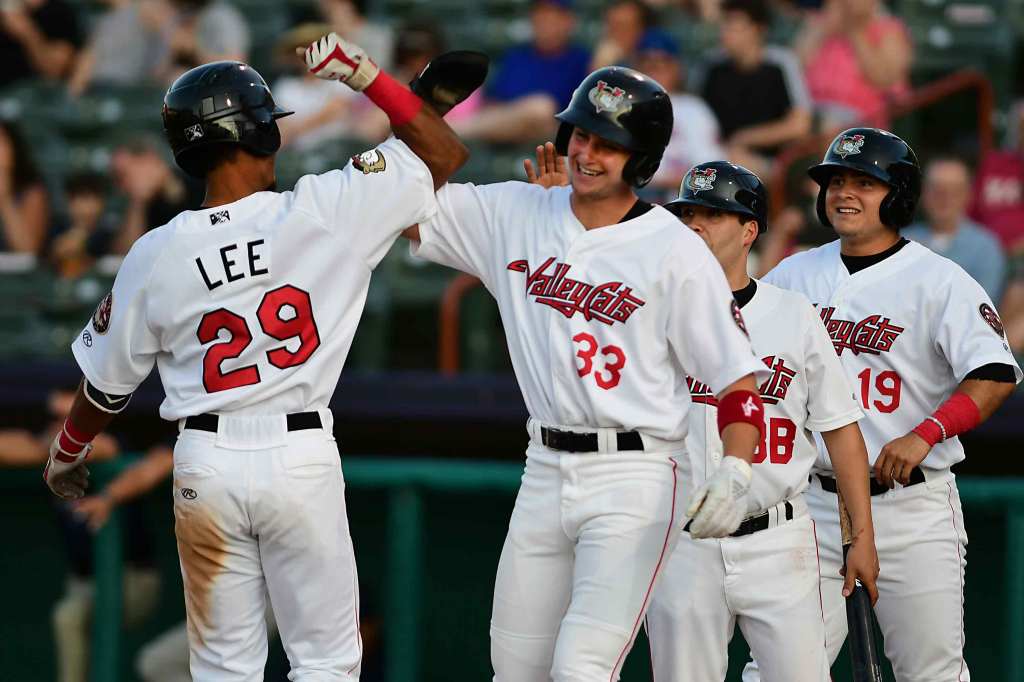 Albany Times Union/Hearst Newspapers /Getty
Albany Times Union/Hearst Newspapers /GettyA year ago, professional baseball made some welcome and overdue decisions. No, not the pitch clocks or larger bases introduced last season, but a more meaningful change off the field. The true home run came from the players themselves, who, by tipping their caps to organized labor—another great national institution—were able to change America’s game for the better.
The Major League Baseball Players Association (MLBPA), the union for Major League players, expanded last year to represent the 5,500 Minor Leaguers coming up through the player-development system, where many of this year’s MLB draft picks started their careers. And last April, through the power of collective action, team owners and the newly-formed Minor League bargaining unit ratified their first-ever collective bargaining agreement, finally addressing the unjust conditions at the underbelly of America’s pastime.
For decades, a broken minor league system left players living below the poverty line, sleeping five or six to a room, working multiple off-season jobs, and skipping meals to make ends meet. The standard Minor League salary was less than $15,000 and as little as $5,000, making these athletes some of the most poorly compensated workers in the United States. They often had to uproot their lives for baseball, breaking leases and incurring debt for mid-season moves. These conditions often depleted players not only for a season or two but sometimes for their entire career.
And, as they so often do, these hardships fell hardest on players of color—especially Spanish-speaking players from Latin America, living and working far from their families. When a Dominican player’s wife gave birth and he couldn’t afford a plane ticket home, teammates passed a hat so he could meet his daughter.
Beyond low wages and poor living conditions, players struggled with an uncertainty shared by too many workers in our economy. They were isolated from colleagues on small-town farm teams and perpetually at risk of alienating the clubs and owners who controlled their destinies. With few resources and little recognition, they had only one recourse: unionization. Former Double-A pitcher-turned-labor lawyer Garrett Broshuis, catcher and vlogger Matt Paré, and other leaders took up the cause, making their case player-by-player for forming a league-wide team for labor rights, until the rumblings swelled from batting cages and travel buses into an industry-wide roar.
As a veteran of organized labor and the leader of a foundation that champions workers’ rights, we both recognized the players’ cause as our own and were proud to follow their courageous lead, respectively helping fund and found Advocates for Minor Leaguers. With funding from the Ford Foundation and seed money from the MLBPA, the nonprofit hired an executive director, a Spanish-speaking organizer to facilitate player outreach, and a communications director to amplify their stories. Advocates appeared in news coverage and organized protests, raising awareness and generating public sympathy; then, with fans and Major League players in their corner, they finally shifted the balance of power and won union recognition. At a critical moment, the MLBPA entered the picture, throwing its weight and resources into organizing the Minor League players into the MLBPA, making MLBPA their exclusive representative.
As a result, Minor League salaries have doubled and tripled in many cases, fairer meal and transportation standards have been negotiated, and some Minor Leaguers now have access to their own bedrooms while on the road, while players with spouses and children receive special accommodations.
While Minor League Baseball’s move towards unionization played out in dugouts and on diamonds, similar stories are unfolding in kitchens, on farms, and throughout countless other workplaces across America. Whether or not we directly interact with these workers, we all benefit from their labor, and we all bear a responsibility to use whatever power and privilege we hold—our dollars as funders and consumers, our attention, our advocacy—on their behalf.
In baseball, we see a blueprint for recognizing injustice and building coalitions to correct it—for listening to workers and following their lead, amplifying their voices, and joining in the fight for a just economy that honors their dignity and values their contributions.
The Minor Leaguers won a major victory that can make the dream of playing in the big leagues more sustainable to hold onto, but their work goes on, and so does ours. While they continue to push for better conditions, they also took an unprecedented step: offering to return unused funds they received from the Ford Foundation. The players wanted to pay forward the support they received, recognizing that others need it even more. So this baseball season and beyond, let’s all take a signal from these courageous leaders and build a fairer economy that works for everyone.
Darren Walker is the president of the Ford Foundation, and Bill Fletcher Jr. is a founder of Advocates for Minor Leaguers.
Related Grantees

